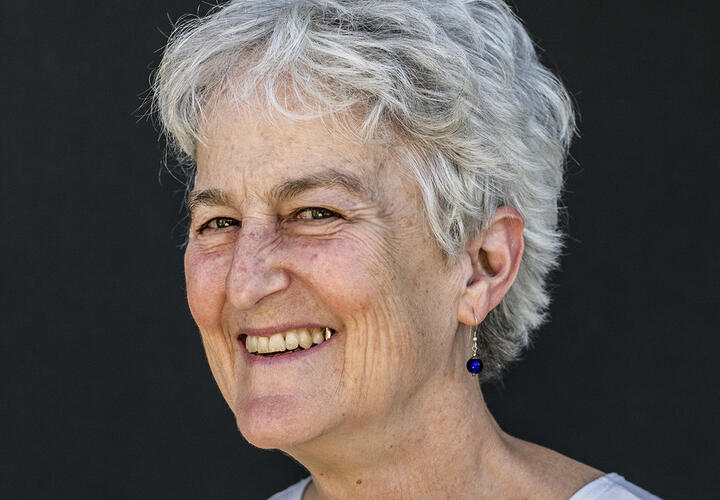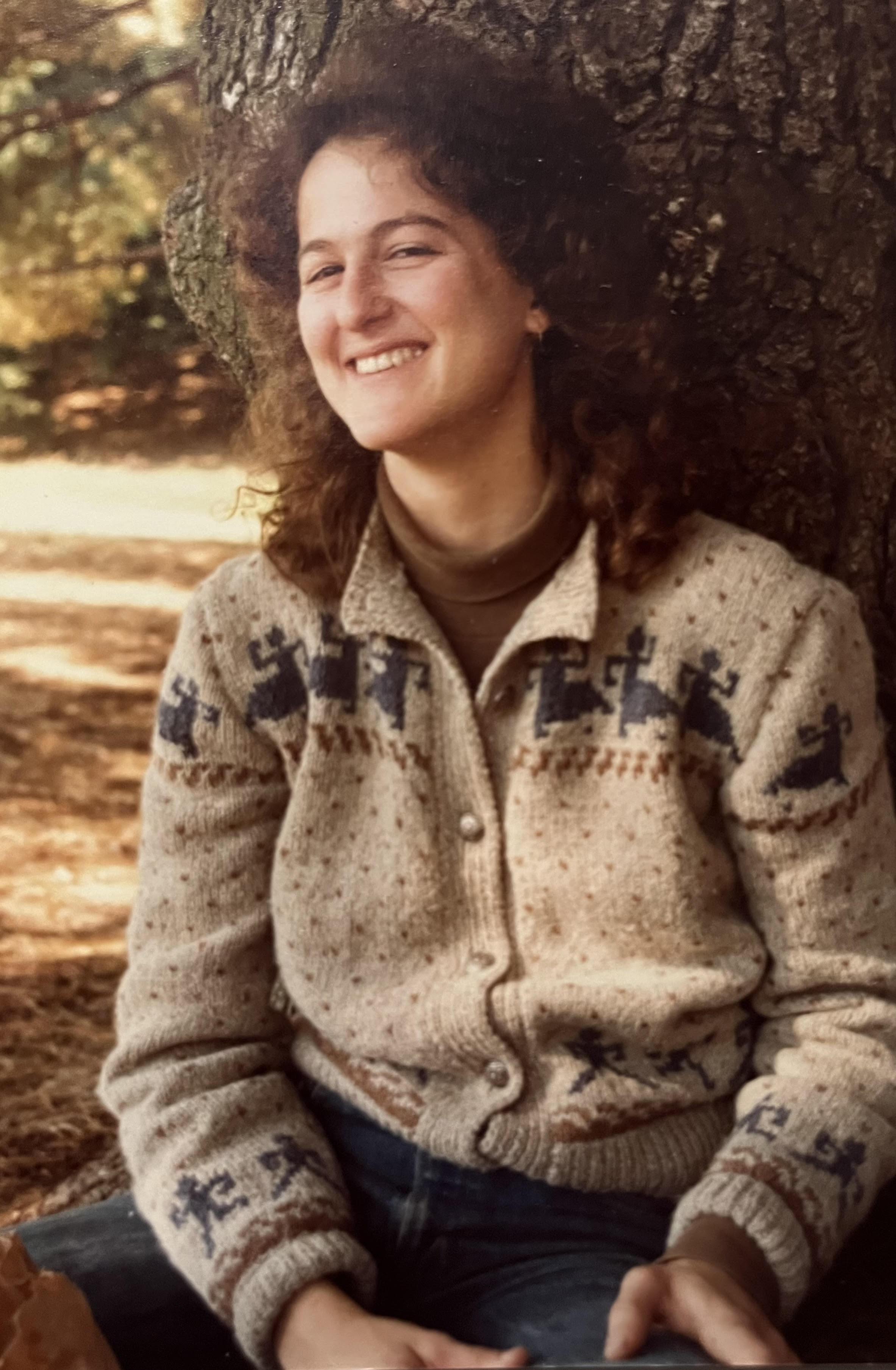Nancy Folbre: Why we should all care more about the care economy
The University of Massachusetts professor emerita and former EGC postdoc looks back on her Texas roots and her pioneering career focused on gender, inequality, and care work.

For much of Nancy Folbre’s childhood in San Antonio, her family – like many middle-class American families in the 1950s – had a full-time nanny to take care of the children. Known simply as “Tía,” the Spanish word for aunt, the elderly Mexican woman formed a special bond with Folbre, the youngest of three siblings. When she passed away, Tía bequeathed her life savings to the young girl – about $8,000. Folbre’s father invested the money in Texaco stock, and it later paid for Folbre’s entire college and graduate education in the public universities of Texas and Massachusetts.
In the decades since, Folbre – who was a postdoctoral fellow with the Yale Economic Growth Center (EGC) from 1979 to 1980 – has conducted pioneering research on the value of “care work,” or the parts of an economy involving childcare, eldercare, and other caregiving, which is often unpaid or low-paid and predominantly performed by women. More broadly, Folbre’s research combines economic analysis with feminist theory, with a focus on gender and family dynamics within households. Throughout her career, one of Folbre’s central arguments has been that traditional economic models do not adequately account for the social and economic value of care workers like Tía.
“That relationship may explain a bit of my loyalty to undocumented workers and care workers in the employ of the middle class,” says Folbre of her nanny. “We had an affinity for one another."
From Austin to Amherst
Throughout Folbre’s childhood, she was keenly aware of money and class issues. During the 1960s, San Antonio was a very segregated city, while Folbre’s father managed the business affairs of a rich oil family – giving her a perspective on both ends of the spectrum from her family’s place in the middle. Living so close to the US border, she also gained an early interest in international development during camping and hiking trips to Mexico’s poor and rural northeast.
During high school and college, Folbre became involved in political activism, the antiwar movement, and what was then called the “women’s liberation movement.” Since she loved big ideas, she studied philosophy at the University of Texas in Austin – and was once bailed out of jail by a philosophy professor after a political demonstration. But after graduation, philosophy didn’t seem practical: Folbre wanted to participate in that era’s sweeping political changes, but she also needed to support herself. She decided on economics – starting with a master’s degree in Latin American Studies, focused on inequality and economic demography, then a PhD in economics at the University of Massachusetts in Amherst.
At UMass, Folbre was drawn to the nascent field of feminist economics, challenging traditional economic methods and assumptions from a gendered perspective. Her dissertation analyzed declining fertility rates in 18th century New England – a time of dramatic change, when the departure of young men seeking fortunes in the West shifted gender ratios and created labor shortages on family farms. Folbre tracked how these shifts expanded the role and importance of women’s work beyond child-rearing, leading to smaller families, delayed marriages, and more economic independence for women – an insight still relevant today for many low- and middle-income countries.
“Doing economic history is a lot like doing economic development,” says Folbre. “The two processes are very related: they both involve a series of exogenous shocks, changes in economic organization, and demographic change.”
A brief but impactful stint at Yale
After completing her PhD, Folbre continued her research in New Haven as an EGC postdoctoral fellow. At Yale, she worked closely with the late development economist Gustav Ranis and also remembers debating Marxian economics with John Roemer, now in Yale’s political science department. The EGC cohort in 1979 included two other women economists – Kathryn Anderson, now at Vanderbilt University, and the late M. Anne Hill of the City University of New York – and Folbre has fond memories of their time together.

Folbre in New Haven during her postdoc fellowship with Yale EGC, 1979-80.
During the fellowship, Folbre wrote three papers that were foundational for her career. The first argued, with compelling data from the Philippines, that it was a mistake for economists to think of households as single decision-making units, since a lot of negotiation, inequality, and “household bargaining” occurs within families – an idea now widespread in economics. The second was a critique of Marxian theory, arguing with precise analysis that men's exploitation of women in the household was akin to firms’ exploitation of workers. The third argued that feminism had important economic dimensions, highlighting empirical evidence related to the political economy of fertility decisions.
The papers reflected Folbre’s interdisciplinary approach, and were aimed at the three key audiences she still works to engage: mainstream economists, left-wing economists, and feminist scholars not yet interested in economics.
“In my career, I’ve always tried to be a bit of a cross-over person,” says Folbre. “I’ve tried not to get pigeonholed.”
An influential career focused on care
Since her time at Yale, Folbre has made important contributions to the field of economics and to the broader public discourse on issues like inequality, gender, and care work. While publishing dozens of influential academic articles, she also helped launch the journal Feminist Economics and has been a key leader for the International Association for Feminist Economics – an organization co-founded by Mariam K. Chamberlain, who was also a member of EGC’s founding team. Folbre has written several books, penned a series of weekly blog posts in the New York Times, and created the influential blog Care Talk. In 1998, she was awarded a prestigious MacArthur Foundation fellowship.
“Nancy has been one of the most consistent, eloquent, and persuasive feminist scholars,” said Naila Kabeer, professor of gender and development at the London School of Economics. “She has argued tirelessly for more joined-up thinking about the economy, about the need to integrate our analysis of how people seek to earn a living and care for their families – and about the power dynamics that often thwart their efforts to do so.”
Over four decades, her work can be characterized as having three key insights. First, care work is highly productive: whether paid or unpaid, caregivers – from stay-at-home moms to workers at a daycare or eldercare center – contribute enormously to the production, development, and maintenance of human capabilities, creating immense social benefits. Second, care work is undervalued, because it seldom conforms to the simple logic of impersonal exchange. Care work involves intrinsic motivation, collaboration with others (including care recipients), and its social benefits represent positive “externalities” or public good effects. In other words, it’s difficult for individual caregivers (or their employers) to individually capture the full value that they create.
Traditional economic models focus more on the subjective satisfaction that a caregiver may enjoy than on the social norms or moral obligations that often motivate care provision, and tend to assume that “virtue is its own reward.” But “psychic income” doesn’t always compensate for low money income, and many highly paid workers also derive subjective satisfaction from their work. A focus on caregivers’ preferences also deflects attention from the benefits they provide to others, further contributing to the undervaluation of their work.
Folbre’s third key insight is that undervaluing care work has broad social and economic consequences. She considers care to be an integral part of our “social climate,” which – like the climate of temperatures and weather patterns – is changing in ways that are very hard to measure. Much as climate change poses broad and far-reaching consequences for the environment, we are beginning to see costly and harmful changes in the social climate, as well. These include persistent poverty and widening inequality as well as increased rates of drug addiction, suicide, and other so-called deaths of despair.
“Care provision is an important example of the types of cooperation that we need to solve major public goods problems like climate change,” Folbre says. “We need to think about the importance of social as well as private investment."
"Nancy Folbre is a leader in the development of feminist economics and the spread of feminist ideas throughout the discipline of economics," said Heidi Hartmann, a research fellow at the Federal Reserve Bank of St. Louis' Institute for Economic Equity who received her PhD in economics in 1974 and is the founding president emerita of the Institute for Women’s Policy Research in Washington, DC. "The caregiving issues Nancy has focused on, like providing childcare, and related issues like providing paid family leave, are now popular areas of study in many parts of the discipline.”
Policy connections and looking ahead
After working on these issues primarily as an outsider for most of her career, Folbre says she is pleased to see that they are finally gaining traction and prominence in mainstream economic debates and policy circles. The current platform of the Democratic National Committee, for instance – and the original “Build Back Better” legislative agenda proposed by the Biden Administration – is care-centric, focusing on both caregivers’ low wages and the inadequate supply of care services. While there is also much opposition and resistance, Folbre sees these developments as positive signs.

Folbre hiking with her partner Robert Dworak near their home in Montague, Massachusetts in 2022.
“It just takes an accumulation of persuasive research findings and the incorporation of those findings into ordinary language for ordinary people,” she said at a recent event with the Salus Populi Foundation, a student organization at Yale. “This stuff is pretty much common sense for most people – so I’m hopeful.”
Moreover, progress is not limited to the United States or wealthy countries like the Nordics, which are well-known for having devised effective care systems that balance public and family provision. Folbre is part of an active and engaged international network of feminist economists working on care issues, often in collaboration with UN Women. In recent years, Folbre’s work in this area has focused on strengthening the methodologies used by low- and middle-income countries’ statistical agencies to measure care work – in particular, improving “time use” surveys (i.e. surveys that assess how families spend their time across different members of the household, which can shed light on the important but often overlooked value of caregivers).
In other words, Folbre is still motivated by what originally inspired her to become an economist: the inadequacy of mainstream economic models to account for the critical role played by caregivers – people like Tía, whose impacts on the Folbre family were enormous but never measured in any official statistics. Compared to the beginning of her career, however, Folbre is optimistic.
“Change is slow, but it’s happening,” she says. “Today’s younger generation of economists are less hindered by traditional assumptions and more willing to venture towards new ideas. For me, it’s good to see. Economics has evolved in ways that have made me more optimistic about the field, and more grateful for it.”